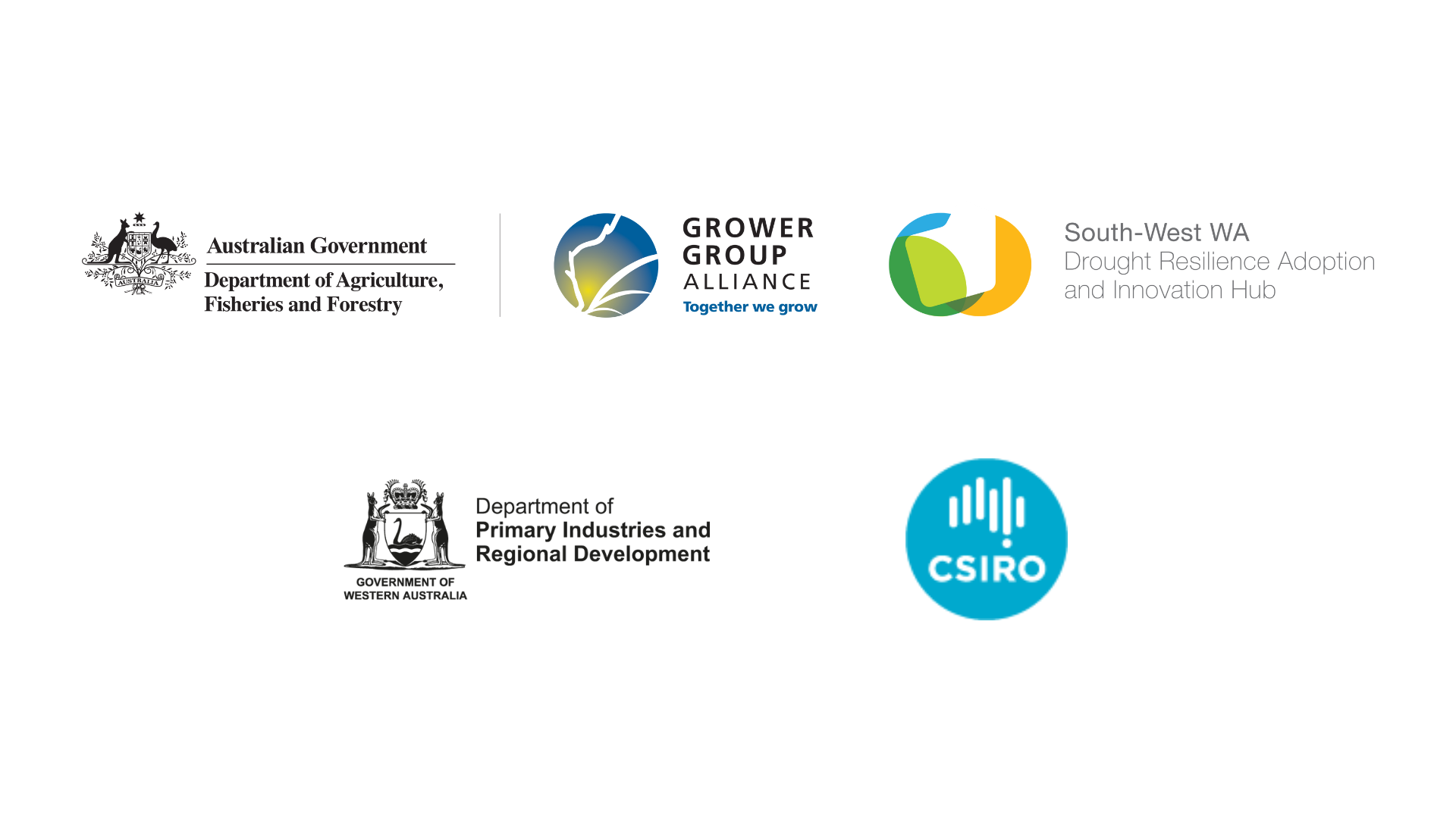Project lead: Department of Primary Industries and Regional Development (DPIRD)
Project overview
The southwest of WA is experiencing declining rainfall, increasing temperature and greater frequency of extreme weather events. In horticultural farming systems, changes to management practices can support adaption to these challenges, especially through the adoption of innovative technologies.
This project explored the suitability of CSIRO’s innovative Sprayable Biodegradable Polymer Membrane (SBPM) technology to improve irrigation efficiencies, reduce herbicide and plastic use, and maintain healthy soils in horticultural systems.
The key objective of this project was to support the profitability and sustainability of southwest WA horticultural producers by promoting the adoption of SBPM across multiple crops.
This project also aimed to challenge traditional farming practices and foster a mindset open to innovative technologies in response to a drying and warming climate.
The trials compared SBPM with conventional practices, considering factors like relative advantages, compatibility, complexity, trialability, and observability to assess its adoptability.
Impacts and Results
This project successfully demonstrated SBPM technology across nine trial sites, fostering strong awareness in southwest WA’s horticultural industries.
However, challenges, including application volume, equipment compatibility, and unknown costs due to the product not being commercialised yet, hinder SBPM’s current adoption.
Insights were shared with CSIRO to assist in the further advancement of the formulation to overcome these challenges.
The project was successful in prompting conventional growers to consider the role new technologies may have in supporting their adaptation to climate change. Growers were particularly interested in SBPM’s potential to increase irrigation water efficiency and reduce reliance on herbicides.
This project was funded by the Australian Government’s Agricultural Innovation Hubs Program and was initiated through the South-West WA Drought Resilience Adoption and Innovation Hub.
Collaborators

